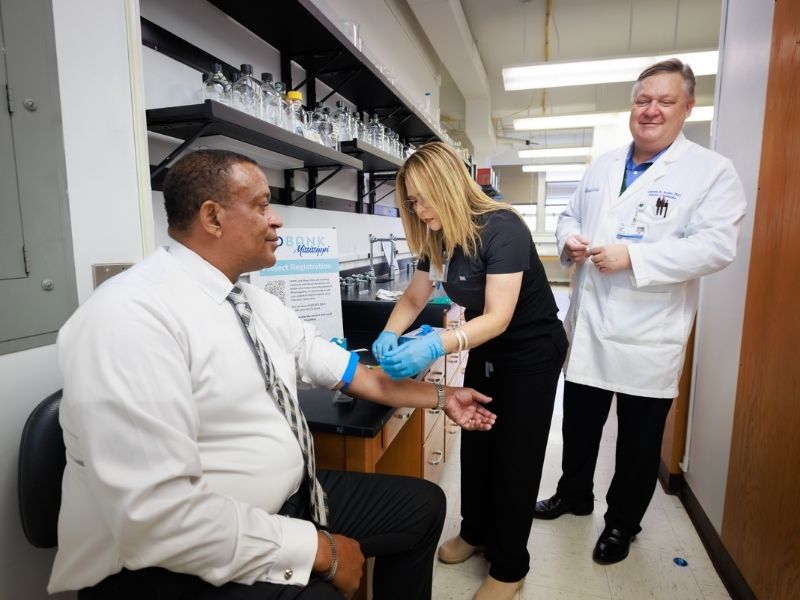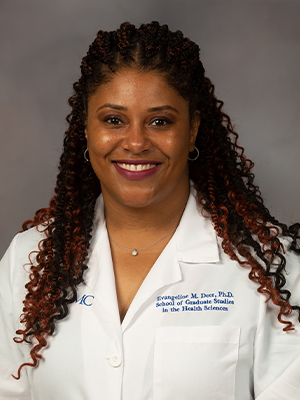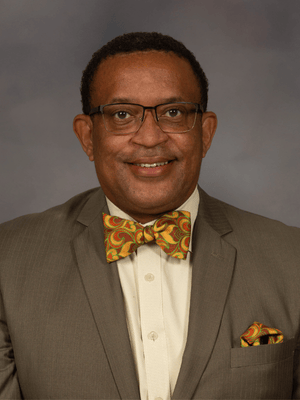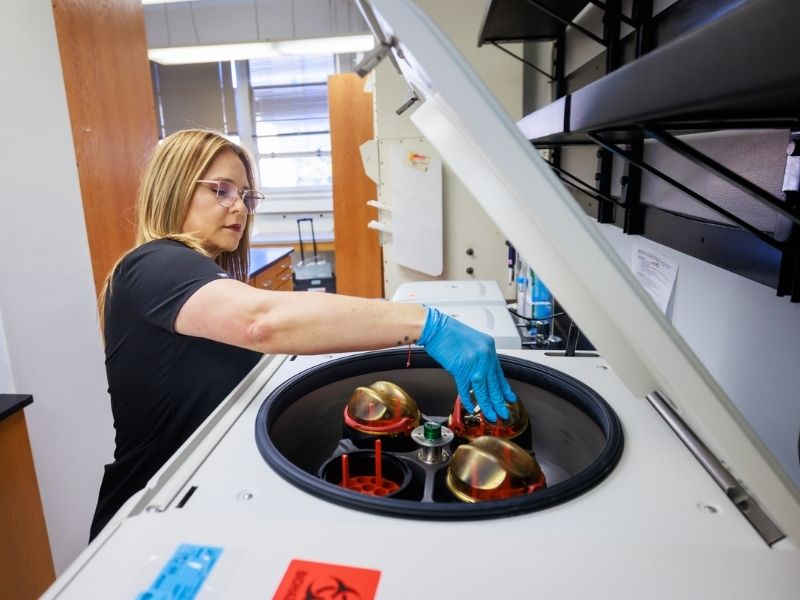UMMC Biobank may reap dividends for improved health statewide

Thousands of human blood samples stored in the UMMC Biobank represent an opportunity for researchers to find a better treatment for, a solution to or a new understanding of a disease.
It's an opportunity to gain a deeper understanding of diseases, discover new treatments, develop innovative laboratory tests and potentially save lives.
The University Biospecimen Repository was established in November 2011 before converting to the Biobank to support translational and clinical research, in addition to serving as a core tissue bank for the UMMC Cancer Center and Research Institute.

“When we started, COVID-19 was an epidemic, and the UMMC Biobank was at the forefront of sample collection from patients with the coronavirus disease,” said Dr. Evangeline Deer, scientific director of the UMMC Biobank. “Starting in 2021, we began collecting specimens of COVID-19 variants.”
Now operated and supported through a state appropriation and by the Department of Pharmacology and Toxicology, the UMMC Biobank supports and promotes access to biospecimen processing, storage and analytic services. It includes blood and tissue from consenting adult and pediatric patients.
“The blood and tissue collected from Mississippians are critical to the research enterprise because of Mississippi's unique population. Our population is unique due to its citizen diversity with a very high incidence and prevalence of multiple chronic diseases and conditions,” Deer said.
When pharmacology took over the biobank program, “it implemented a new structure with support for faculty and staff to enhance the biobank's effectiveness and productivity,” said Kevin Wilbert, director of operations for centers and cores in pharmacology and toxicology.

“We are enhancing critical resources through space renovations, bringing more freezers online and software and hardware with tube scanning capabilities to better steward these precious samples and increase and standardize our storage capacity and drive scientific discovery.”
The biobank provides state-of-the-art biospecimen processing and specimen storage services and access to analytic laboratory services. In addition, it collaborates with Biobank Mississippi, which obtains consents, collects specimens, utilizes a lifestyle questionnaire and maintains samples from participants. The samples include, in part, DNA, plasma and serum.
The biobank inventory includes general patient blood-based specimens, tumor resections and COVID-19-specific blood collections. Specimen collections target women’s health, obesity, neurodegenerative/mood disorders and cancer-related research.
Whether a researcher represents UMMC or an external organization, they can apply to access biospecimens and linked clinical data through an application form and approval process.
Deer said in procuring samples to use and share with internal and external investigators, the biobank hopes to recruit 10,000 participants to share their blood and tissue samples. The Biobank is more than halfway to that goal with close to 6,000 samples.
“Since its inception, the biobank’s mission has been to provide high-quality biospecimens with linked clinical and pathological data to support cutting-edge research across UMMC and its partner institutions,” Deer said.
Under the leadership of Dr. Babbette LaMarca, chair of pharmacology and toxicology, the UMMC Biobank has an ever-growing inventory due to its ability to build strong partnerships with researchers and external investigators and partnering institutions.

Through the many UMMC-affiliated hospitals, clinics and communities, the biobank also contributes to the National Institutes of Health-sponsored "All of Us" research program coordinated with UMMC and the University of Alabama at Birmingham. Participants’ blood samples can be taken during patient visits at clinics or hospitals or during physician appointments.
Collected specimens help answer some of the most challenging questions related to science and health. “Our biospecimen procurement efforts have recently expanded the diversity of specimens that the biobank can collect,” Deer said. “We’ll be doing the same to support research efforts with the expansion of the Cancer Center and Research Institute. Our clinics around the state are crucial for expanding the available specimen inventory.”
Due to this diversity and increased chronic diseases, the biobank has established several collaborations with the Mayo Clinic, as well with UMMC in surgery, pathology and obstetrics and gynecology.
The program has a large inventory of surgically resected tissues through collaborative agreements in place with the Department of Surgery. "Our vision is to become the premier regional resource for both internal and external researchers, helping facilitate discoveries and make the science behind medicine better,” said Dr. Ken Butler, professor of pharmacology and toxicology and associate director of the biobank.
Butler added many of the tissue samples originate from the Department of Pathology and are obtained from consenting participants before surgery. “These tissue samples add an additional layer of scientific value and complement findings from serum and plasma studies,” he said.
And Wilbert emphasized the importance of getting patients to voluntarily participate in the biobank by providing blood samples. “The program is contingent on educating the community about what it is, how it works and how patients and others in the community can help. This is particularly important when approaching rural patients and increasing participation from underserved communities,” he said.
There is no direct benefit to the patient or donors to participate in sharing a sample, according to Sheila Belk, assistant professor of pharmacology and toxicology. “But they do contribute to others’ overall health in the state by helping with research. We’ll use the samples to help Mississippi’s larger population as a whole and, most importantly, those with prevalent chronic conditions, including hypertension, diabetes, heart disease, cancer, aging conditions and more,” she said.
For more information about the biobank, email ummcbiobank@umc.edu or visit the UMMC Biobank website.


